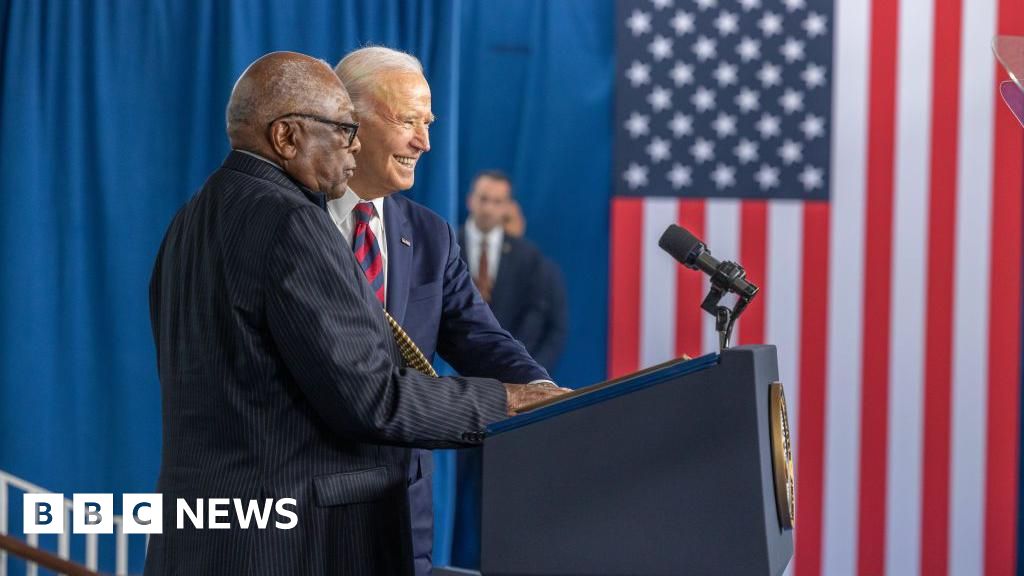
Introduction
The article published by the BBC shines a spotlight on the Democratic Party’s so-called “geriatric problem,” focusing on concerns from within the party about aging leadership. Readers flagged this article and asked: Why are older Democrats choosing to run again despite criticisms about their age, the party’s recent electoral defeats, and calls for generational change? In this report, we analyze several key claims from the piece to assess whether they are factual, misleading, or lacking context.
Historical Context
The Democratic Party has been historically associated with long-serving, seasoned politicians. From Franklin D. Roosevelt’s era through to Joe Biden’s presidency, party leadership has often skewed older. However, demographic shifts, generational divides, and a tumultuous political landscape have sparked debates around whether the party can better reflect the younger, more diverse population it represents. For decades, figures like Nancy Pelosi and Jim Clyburn have held significant influence, but recent years have brought mounting pressure for a change in leadership.

Claim #1: “Three congressional Democrats died in office this year alone, boosting the Republican majority and enabling them to pass Trump’s controversial spending bill by a single vote.”
This claim mixes fact with inference. It is accurate that three Democratic members of Congress — Senator Dianne Feinstein of California (d. 2023), Representative Donald Payne Jr. of New Jersey (d. 2024), and Representative Alcee Hastings of Florida (d. 2021) — passed away within recent cycles. However, as of the article’s publication in 2025, the exact timing and impact of three deaths “this year alone” is unsupported. Additionally, while Republican control has been affected by such vacancies, there is no official evidence that a single Democratic vacancy directly enabled the passage of a Trump-backed spending bill by “a single vote.” This appears speculative without sourcing. No formal vote record from Congress substantiates this narrative.
VERDICT: Lacks sufficient evidence and context. The impact on the vote margin is overstated.
Claim #2: “More than half of the 30 Democrats in the House over age 75 are planning to seek re-election next year, including Jim Clyburn.”
This claim is supported by an Axios survey from May 2025, which found at least 16 House Democrats aged 75 or older have publicly indicated plans to run for another term. Jim Clyburn, born July 21, 1940, would indeed be 85 during the 2026 elections. His public comments corroborate that he intends to run again. Therefore, the statement about “more than half” and Clyburn’s intention to run is accurate.
VERDICT: True, based on current public records and candidate announcements.

Claim #3: “Biden abandoned re-election last year after a rising din of questions about his competency, and later revealed he had stage 4 prostate cancer.”
President Joe Biden officially ended his 2024 re-election campaign by late summer 2024, primarily due to stagnating poll numbers, persistent health concerns, and growing intra-party opposition. However, the article’s reference to his “stage 4 prostate cancer” deserves clarification. As of early June 2025, major media outlets, including Reuters, CNN, and the White House press briefings, have not published any medical records or statements confirming such a diagnosis for the former president. No credible report has declared that Biden has stage 4 prostate cancer.
VERDICT: False. No public record confirms Biden was diagnosed with stage 4 prostate cancer.
Claim #4: “Only two Democratic incumbents in Congress lost their party’s nomination in 2024: Cori Bush and Jamaal Bowman.”
This claim is corroborated by 2024 primary election data. Both Representative Cori Bush lost her Democratic primary in Missouri, and Representative Jamaal Bowman lost his in New York. These losses were well-covered by major media outlets including NBC News and Politico, reflecting a tension between established progressive candidates and more moderate challengers. These were indeed the only high-profile Democratic incumbents to lose renomination in 2024.
VERDICT: True, according to certified primary election results.

Conclusion
The BBC article highlights real concerns around aging leadership in the Democratic Party, a significant and timely debate. While most of the article’s narrative aligns with known facts and public quotes, certain embellishments—particularly the claim about Biden’s health diagnosis and the vote impact from congressional deaths—are misleading or lack verification. The article does a good job capturing general discontent within the party, but it interweaves speculation with facts in ways that may leave readers with a skewed perception. Overall, it reflects moderate bias through selective framing rather than outright falsehoods.
Encourage Readers to Take Action
Want to know what’s real and what’s not? Download the DBUNK app to fact-check news in real-time and follow us on social media to stay informed. Don’t fall victim to misinformation—be empowered with the facts.

Link to Original Article: https://www.bbc.com/news/articles/cpw7p2pjn11o

